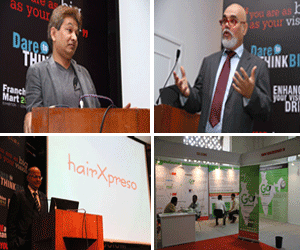Truworths has adopted a cautious and incremental approach to store expansion plans outside of SA in order to gain a better understanding of the operating environment and the market potential, the fashion retailer said in its annual report, released last week.
Truworths’ planned opening of a new franchise store in Luanda, Angola, this year has been delayed until next year.
Political stability and strong economic growth have seen the rest of the continent lure retailers in search of higher yields, with consumer-facing industries turning their attention to the next hot ticket — the often-quoted 1-billion African consumers.
Truworths has 564 stores in SA, 40 corporate stores outside SA in countries like Zambia, Nigeria and Ghana, with a further five franchise stores in Kenya. The group also has a shareholding of about 35% in Truworths Limited, incorporated in Zimbabwe, which operates 16 Truworths, 25 Topics and 18 Number 1 stores.
“The African expansion strategy focuses on countries showing strong economic growth prospects. The increasing trend to urbanisation and the growth in the middle-class population in these countries should support sustained growth in consumer spending,” Truworths, headed by CEO Michael Mark, said.
“The pace of store openings in the rest of Africa is dependent on the availability of store locations and the continued growth in real estate development in these countries.”
The company is not alone in its endeavours to expand northwards. Over the next three years, rival Foschini Group plans to double its African footprint from its existing spread of 104 stores, all of which are corporate owned. Foschini is eyeing both existing and new markets like Angola, Ghana and Mozambique.
Urbanisation has led to the growth of formalised retail markets that are fuelling an upsurge of consumer culture in Africa. It is estimated that there are now about 50-million middle-class households across Africa, measured as those households with incomes of at least $20,000 a year, about the same as in India.
Woolworths, whose operations outside SA involve mostly clothing and general merchandise, is also growing its footprint.
The upmarket retailer has a presence in 12 African countries, including SA, and also prefers a corporate model for expansion.
“Africa is growing fast. I’m not a big believer in the north of Africa. Nigeria is tough as hell. Where it’s easy to grow and where opportunity exists is subSaharan Africa,” Woolworths CEO Ian Moir said in August.
Woolworths has a mixture of franchise, joint-venture and wholly owned stores in Africa. The company is in negotiations to acquire its franchise business in Botswana, which consists of 22 stores. The franchisee also owns Woolworths stores in Namibia and Ghana.
“We will take that back and we will drive that business,” Mr Moir said. “We are not doing as good a job as we could in Africa, and I don’t think we’re alone in that. I think better understanding of the market, better profiling of the store, better flow of our goods into those markets, is going to make a difference for us. If we can improve our efficiencies … then we can build a bigger business and make Africa a bigger future for Woolies.”
Woolworths plans to have 82 stores in Africa outside of its home market by 2016.
While rich pickings do exist, operating conditions in African markets remain difficult.
According to Truworths, complex logistics and supplychain processes, high rental costs, complicated regulations, and high duties and tariffs make trading in some of these markets challenging.
The planning and allocation of merchandise in these new markets also poses a challenge, as does managing the product offering in countries with warm year-round climates.
Earlier this year, Mr Price said that although initial growth was expected to be limited by the lack of available sites, it would continue with its African expansion, adding more stores in Nigeria and Ghana.
Mr Price CEO Stuart Bird said: “Africa’s expected growth will ensure a significant expansion of the middle class, to whom our fashion-value offer will appeal.
“We’re present in a number of other African countries through our franchise operations. This isn’t a vehicle that we’re going to pursue … in a number of significant countries where we have franchise operations on the go, we would like to acquire those in time.”
“There is significant expansion opportunity in SA and the African continent as a whole, with H&M already operating stores in Egypt and Morocco. However, securing prime sites will be a key factor in how quickly H&M can expand,” Ms Ormrod says.































 +91 9909960054
+91 9909960054
Pingback: Talware
Pingback: Srikant
Pingback: Venkat Raman